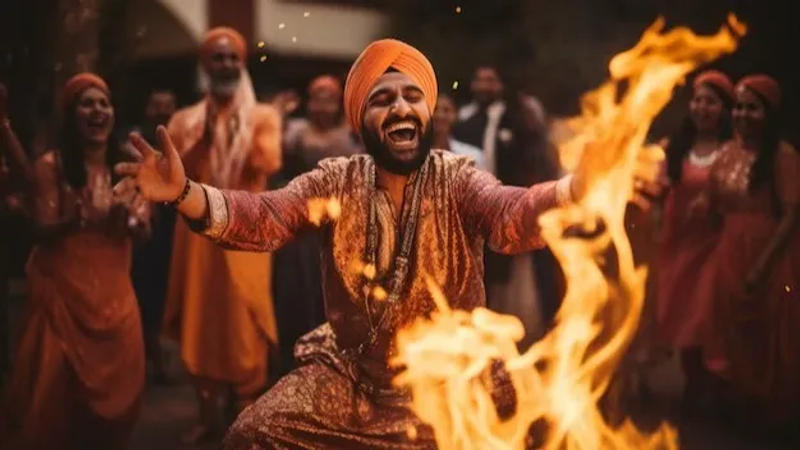Published 00:04 IST, January 4th 2024
What is Lohri? Date, history, significance
Lohri is a popular festival that is celebrated in parts of North India to mark the harvest of the rabi crops. It is observed on January 13 every year.

Lohri is a popular festival that is celebrated in parts of North India to mark the harvest of the rabi crops. It is observed on January 13 every year. People worship sun to thank them for the good harvest. The day is observed by the communities with different names.
Date of Lohri celebration
It's usually observed on January 13 each year. The festival is closely connected with the winter season as it signifies the longer days ahead. People gather around bonfires, sing traditional songs, dance, and offer thanks for the harvest.

Winter festivals like Lohri often have cultural significance, emphasizing community, warmth, and the agricultural cycle. They bring people together to celebrate the changing seasons and express gratitude for the harvest that sustains them through the winter months.

Significance of Lohri
The ancient significance attached to the festival is a winter crop season celebration. It is linked to the Punjab region. A popular folklore links Lohri to the tale of Dulla Bhatti.
The central theme of several popular Lohri songs is the legend of Dulla Bhatti (Rai Abdullah Bhatti) whose father was a zamindar. The father used to live in Punjab during the reign of Mughal Emperor Akbar. He was regarded as a hero in Punjab, for rescuing Punjabi girls from being forcibly taken to be sold in the slave market of the Middle East. According to the folklore, Dulla Bhatti was the most powerful Akbar's army of 12 thousand. No one was able to catch him. So in 1599, he was caught treacherously during the fight, and, then he was hanged. So, on the day of the Lohri festival, people remember Dullah Bhatti and his sacrifices.

It is believed by many that the festival marks the passing of the winter solstice. Lohri marks the end of winter and is a traditional welcome of longer days, and to mark the sun's journey to the Northern Hemisphere by people in the northern region of the Indian subcontinent. It is observed the night before Maghi.
Updated 12:53 IST, January 13th 2024



